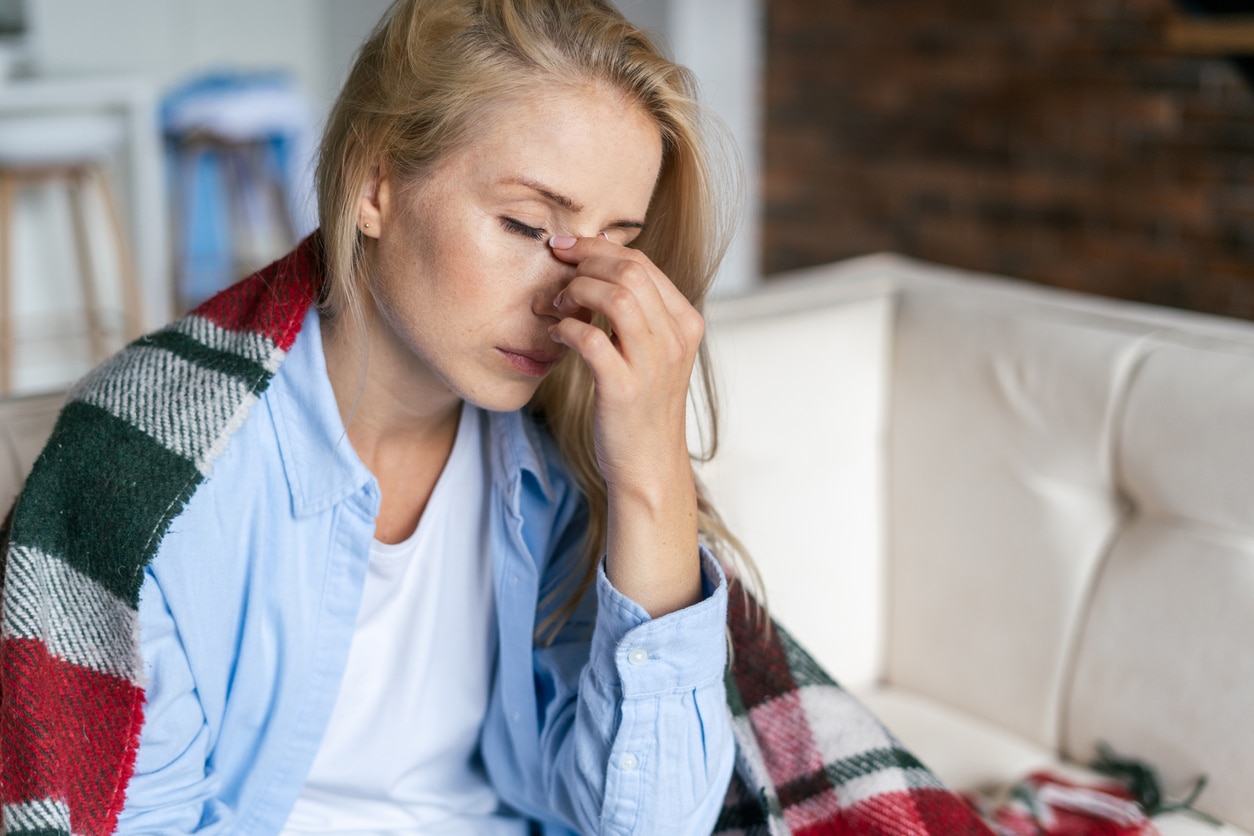
For the 26% of U.S. adults with seasonal allergies, spring’s arrival can awaken an array of annoying symptoms, including itchy and watery eyes, sinus pain, sneezing and even fatigue.
Common allergy symptoms cause fatigue by preventing you from getting a good night’s rest. A stuffed-up nose can make it hard to fall asleep, and coughing fits can jolt you awake, disrupting your sleep. In addition, congestion creates pressure in your head, leading to tiredness.
However, allergies aren’t always to blame for your fatigue.
Fatigue Is a Sign of Other Conditions
Many medical problems have fatigue as a symptom, such as depression, iron deficiency, thyroid problems and sleep apnea.
Other conditions that can create tiredness include:
- Colds—An upper respiratory infection will have symptoms similar to allergies but without itchy, watery eyes. Another difference? Colds can come with fever, swollen glands and muscle aches and will run their course in two weeks.
- COVID—A whole host of COVID symptoms mimic allergies, but having itchy, watery eyes isn’t one of them. Like colds, COVID causes fever, muscle aches and swollen glands, but it may also come with a loss of taste and smell and digestive issues.
- Stress—Fatigue is a well-known symptom of stress. While stress, like allergies, can cause sleep problems, other symptoms include gastrointestinal problems, muscle aches and difficulty breathing.
In general, if your fatigue coincides with other classic allergy symptoms that last for weeks or months, your fatigue is likely allergy related.
However, seeking medical attention from a professional is the best way to determine what’s going on with your body and the appropriate treatment.
If you’re struggling with tiredness from suspected allergies or are unsure of what specific allergies you may have, our expert allergy team is here to help.
“I have been going to Willamette ENT on and off for most of my life. The staff is always so friendly, and the doctors and nurses show a lot of care and compassion!”